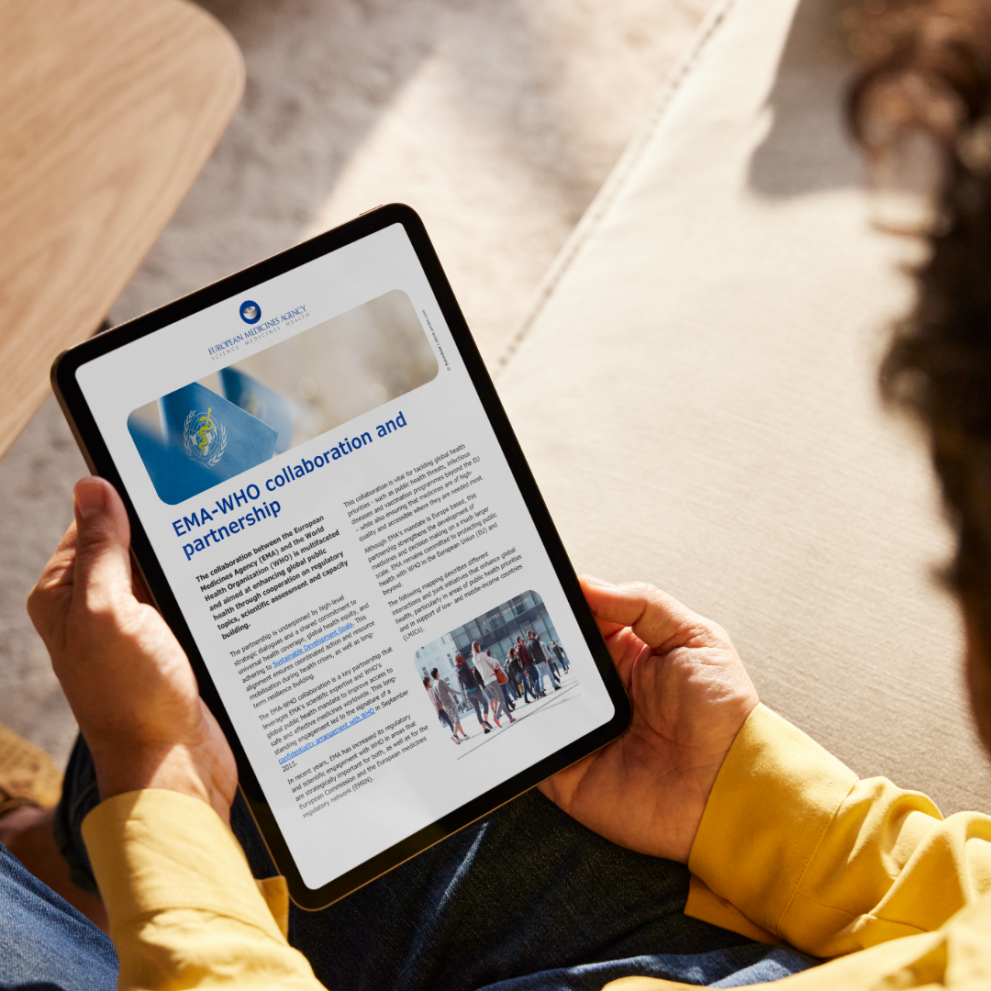
World Health Organization (WHO)
The European Medicines Agency (EMA) works together with the World Health Organization (WHO) on a wide range of initiatives related to medicine regulatory topics, scientific assessment of medicines and capacity building to advance global public health.
Corporate
